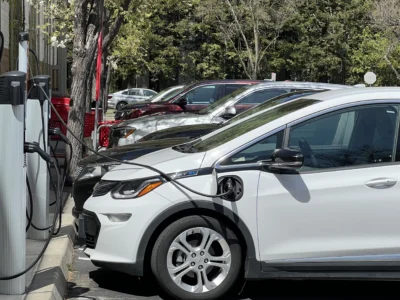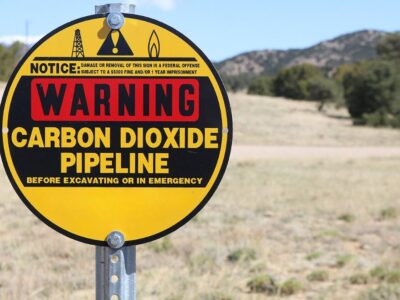Apple’s China Problem

There has been an interesting confluence of stories in the press about Apple as the release of iPhone 5 approaches this week. The New York Times recently ran a story, entitled “You Love Your iPhone, Literally,” about how test subjects looking at sounds and images of the iPhone exhibited heightened activity in the parts of the brain associated with love and compassion. A few days ago, NYT had another story – “A Trip to China Can Make a Guy Hate His iPhone” – discussing a theatre show about inhumane labor conditions in Chinese factories making iPhones.
These stories arrive just a month after the release of a report by Chinese environmental advocates detailing serious environmental violations at Apple suppliers in China, involving pollution of local rivers, mishandling of toxic waste, and potential harm to small children at a nearby kindergarten. Hundreds of media outlets ran stories about these revelations, with headlines like “Are Apple Suppliers Causing Cancer in China?” One story called the supply chain allegations “Tim Cook’s first big challenge as Apple’s CEO.”
So what’s to be done? Love, hate, and toxic poisoning of children are probably more than most people bargained for when they stopped at their local Apple Store to pick up a cell phone. The reactions to these allegations have run the gamut, with denial, anger, bargaining, depression, and acceptance – all the five stages of grief and dying. Appropriate, I suppose, for a product that people “love.”
For those in denial, the question is whether Apple is really poisoning workers and children in China? Regarding the factual basis of allegations against Apple, here is a video released by Chinese NGOs:
[youtube=http://www.youtube.com/watch?v=6p2VlbGpKKU]
I think the burden is now on Apple to demonstrate that these claims are not true. These allegations come from a very credible source. Ma Jun, the lead on the Apple campaign, is one of China’s most respected environmentalists. He was a Yale World Fellow and one of Time Magazine’s 100 most influential people in the world a few years back. He authored “China’s Water Crisis,” which has been described as China’s “Silent Spring.” He previously worked for an environmental consulting firm advising corporate clients, and so knows the nuts and bolts of developing more sustainable production. (Full disclosure: I previously worked with Ma Jun’s group on several initiatives when I was an employee at the NRDC.)
So, let’s assume the allegations of pollution are true. Others have suggested that it is unfair for Chinese NGOs to single out Apple. The answer to this is, of course, that the NGOs did not single out Apple. Apple singled itself out with a particularly uncooperative and non-transparent response to these serious allegations. The Chinese NGOs issued a report last year that highlighted problems among dozens of high-tech firms. Most of the other firms, however, engaged with the Chinese NGOs and explained or sought to fix their environmental problems. Apple has, inexplicably, stonewalled.
Some have suggested that the NGOs should target poor Chinese environmental enforcement instead. But, this seems to me a strange argument. If Apple is aware of serious pollution in its supply chain it has a responsibility to do something about it. Most customers will not be persuaded if Apple’s argument is that the Chinese government should be responsible for stopping illegal toxic waste released by Apple suppliers.
In this era of organic food, free-range this and that, fair trade, and sustainable and cruelty-free products, customers want to know that the products they buy are not harming people somewhere down the supply chain. Call it a cruelty-free iPhone. Moreover, massive multi-national corporations like the Apples, Wal-Marts, and IKEAs of the world know that modest business changes can make an enormous difference to the environment. In places, like China, where environmental regulation and rule of law are still weak, better corporate practices can be the best hope for the local environment.
Customers who are disturbed about the allegations against Apple might be wondering what they are supposed to do. Boycott Apple? We are going to see a frenzy as customers fight to get their iPhone 5s this week, and a boycott will likely be a hard sell for a customer base that literally “loves” iPhones, iPads, and iMacs. One thing people can do is support the excellent environmental groups that are dedicated to working with corporations to find a better, more sustainable way of production. Ma Jun’s Institute of Public & Environmental Affairs and others are actively working with corporations to develop more environmental production methods.
But this will only be helpful if Apple cooperates. If Apple does nothing to improve its pollution problem in China and continues to stonewall, the parade of bad publicity is going to continue. Sooner or later, customers will begin to take their business elsewhere.
Update: China Dialogue reports this morning that Apple has in recent weeks engaged in initial discussions with Chinese NGOs. NRDC President Frances Beinecke has written a letter to Apple CEO Tim Cook as well with a series of specific recommendations/requests, including assessment of tier 2 and 3 suppliers (makers of circuitboards and other components, where more pollution tends to occur) and designating environmental breaches as “core violations” that trigger a more formal review process. This is a good first step. Let’s see what Apple ultimately decides to do.
Reader Comments
4 Replies to “Apple’s China Problem”
Comments are closed.








Alex, I read these same two articles. Being environmentally sensitive, I was aware of the issues and still love my iPad and use it constantly. In fact writing this reply.
My weak rationalization is that no truly green option.
Could Apple use its marketing talents to create a green brand that people can embrace? How much more would it cost?
“cruelty free” is now a standard with beauty products and animal testing. Perhaps we should expand that concept to our fellow humans.
Claudia, Thanks for your comment. I will confess to being a loyal Apple user as well. I have been for many years. That makes the revelations about pollution and health risks all the more troublesome. I think the key is to keep up the pressure. I find it hard to believe that Apple is comfortable with the idea of iPhone production hurting children and workers in China. And more information about Apple’s supply chain problems is coming out every day (http://www.appleinsider.com/articles/11/10/25/apple_supplier_pegatron_facing_pollution_concerns_in_china.html). The key now is how Apple chooses to respond to these problems. It needs to take them seriously, and ramp up staffing to make sure that Apple products aren’t made in a way that harms people and the environment. Ma Jun and NRDC have offered up a set of very practical solutions (http://www.guardian.co.uk/environment/2011/oct/04/apple-chinese-pollution-concerns) that Apple can implement. If Apple chooses not to respond in a reasonable way, we should all think about taking our business elsewhere.
We are long time users of all thing apple, and absolutely love there products.
But now refuse to purchase any more products until we are satisfied these issues have been addressed and rectified.
Mike B from New Zealand